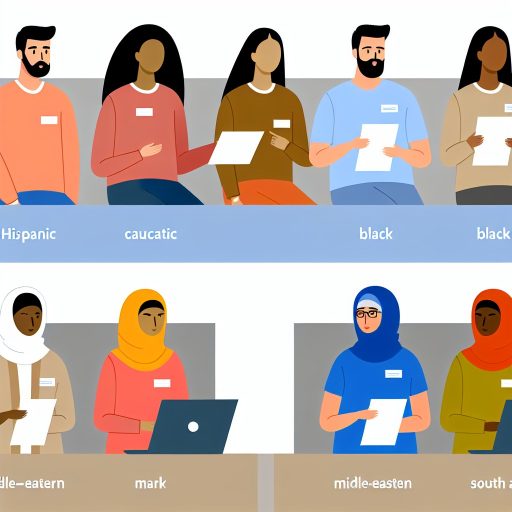Community health workers play a crucial role in healthcare by bridging gaps between underserved communities and healthcare services.
Their work is vital in addressing public health issues such as access to care, disease prevention, and health education.
Challenges Faced by Community Health Workers
- Limited resources hinder their ability to provide quality care to the communities they serve.
- Lack of recognition and respect for their role often leads to burnout and job dissatisfaction.
- Language and cultural barriers can make it challenging to effectively communicate with diverse populations.
- High workload and expectations result in stress and difficulty in balancing work and personal life.
- Limited training and professional development opportunities hinder their ability to stay updated with best practices.
- Inadequate support from healthcare systems and policymakers can limit their impact on community health outcomes.
- Limited access to technology and data can hinder their ability to track and monitor health outcomes effectively.
- Lack of collaboration and coordination with other healthcare providers can lead to fragmented care for patients.
- Safety concerns in community settings put them at risk of exposure to violence or infectious diseases.
- Advocating for policy changes and resources to support their work can be challenging due to limited influence and resources.
Lack of Recognition and Respect
Community health workers play a crucial role in providing healthcare services to underserved populations.
Despite their importance, they are often undervalued and underappreciated by society.
- This lack of recognition can have a negative impact on their morale and job satisfaction.
- Feeling unappreciated can lead to burnout and decreased motivation among community health workers.
- When their efforts go unnoticed, it can be demoralizing and discouraging for them.
- Recognition and respect are essential for boosting the morale and motivation of community health workers.
Inadequate Compensation and Benefits
Community health workers often work in low-income areas where healthcare resources are limited.
They may not receive competitive salaries or benefits compared to other healthcare professionals.
- Inadequate compensation can lead to financial struggles and job dissatisfaction among community health workers.
- They may feel unappreciated and undervalued when their hard work is not reflected in their pay.
- Lack of benefits such as health insurance or retirement plans can further add to their financial stress.
- Improving compensation and benefits for community health workers is essential to retain and motivate them.
Limited Resources and Support
Community health workers often work in resource-constrained settings where access to medical supplies and equipment is limited.
They may not have adequate support from healthcare facilities or organizations they work for.
- Lack of resources can hinder their ability to provide quality care and services to the community.
- Without proper support, community health workers may feel overwhelmed and isolated in their roles.
- Access to training, supervision, and mentoring is crucial for their professional development and success.
- Organizations should invest in providing necessary resources and support to empower community health workers.
Challenges in Career Advancement Opportunities
Community health workers may face limited opportunities for career growth and advancement within their field.
They may feel stuck in their positions without clear pathways for professional development.
- Without opportunities for career advancement, community health workers may feel stagnant in their roles.
- Limited growth prospects can lead to job dissatisfaction and lack of motivation among them.
- Providing avenues for career progression can help retain talented community health workers in the field.
- Training programs and opportunities for further education can empower them to excel in their careers.
Cultural and Social Barriers in Healthcare Delivery
Community health workers often work with diverse populations with varying cultural beliefs and practices.
They may encounter cultural and social barriers that impact their ability to deliver healthcare services effectively.
- Misunderstandings or lack of cultural competence can hinder communication and trust between community health workers and clients.
- Addressing cultural and social barriers is essential to provide culturally sensitive and effective care to the community.
- Training on cultural competence and sensitivity can help community health workers navigate diverse cultural landscapes.
- Building strong relationships based on respect and understanding is key to overcoming cultural and social barriers.
Limited Resources and Funding Affecting Community Health Workers
Community health workers often work with limited resources and funding.
This situation poses several challenges for effectively serving their communities.
Let us explore key issues related to this shortage.
Insufficient Training and Support for Community Health Workers
Due to limited resources, community health workers may not receive adequate training.
Lack of support can also hinder their ability to perform duties effectively.
This limitation creates gaps in knowledge and skills.
Consequently, the quality of care provided to the community can suffer.
Lack of Essential Supplies and Equipment
Without proper funding, accessing necessary supplies becomes a challenge.
Transform Your Career Today
Unlock a personalized career strategy that drives real results. Get tailored advice and a roadmap designed just for you.
Start NowThis shortage limits the ability to deliver adequate healthcare services.
It can also compromise the quality of care offered to the community.
Inadequate Transportation and Logistics Support
Limited resources affect the ability to travel to remote or underserved areas.
Community health workers may find it difficult to reach those in need.
Lack of transport hinders timely and accessible care delivery.
Limited Access to Technology and Communication Tools
Access to technology is crucial for effective healthcare delivery today.
With limited funding, workers may lack essential communication tools.
This shortage inhibits collaboration and patient data management.
It also restricts access to updated healthcare protocols and guidelines.
Challenges in Building Trust and Rapport with the Community
Trust and rapport are essential for effective healthcare service delivery.
Limited resources make community engagement difficult to sustain.
Workers may struggle to establish meaningful relationships.
This challenge affects culturally sensitive care provision.
High Workload and Risks of Burnout
Community health workers often face high workloads with limited support.
This situation places strain on their well-being and job satisfaction.
Stress and fatigue may result from these demanding conditions.
Obstacles in Advocating for Policy Changes and Resource Allocation
Advocacy plays a crucial role in improving healthcare infrastructure.
Limited resources hinder effective advocacy for necessary changes.
Funding constraints restrict investments in programs and services.
Stakeholders must prioritize investment in community health workers’ well-being.
Transform Your Career Today
Unlock a personalized career strategy that drives real results. Get tailored advice and a roadmap designed just for you.
Start NowProper support ensures delivery of high-quality and equitable healthcare.
See Related Content: School Social Workers: Supporting LGBTQ+ Students
Inadequate Training and Support for Community Health Workers
Community health workers require comprehensive training and support to be effective.
Lack of proper training can hinder their ability to deliver quality care to the community.
Training should cover a wide range of topics, including healthcare delivery, communication skills, and cultural sensitivity.
Without adequate training, CHWs may struggle to understand complex medical information and provide appropriate care.
Support from healthcare professionals is essential for CHWs to navigate challenging situations and seek guidance when needed.
Continuous learning opportunities and mentorship programs can enhance CHWs’ knowledge and skills over time.
Training should be tailored to the specific needs of the community and address local health challenges effectively.
Regular supervision and feedback are crucial for CHWs to identify areas for improvement and enhance their performance.
CHWs often face burnout and stress due to the demanding nature of their work, highlighting the need for mental health support.
Access to resources, such as educational materials and medical supplies, is necessary for CHWs to fulfill their duties effectively.
- Community health workers require comprehensive training and support to be effective.
- Lack of proper training can hinder their ability to deliver quality care to the community.
- Training should cover a wide range of topics, including healthcare delivery, communication skills, and cultural sensitivity.
- Without adequate training, CHWs may struggle to understand complex medical information and provide appropriate care.
- Support from healthcare professionals is essential for CHWs to navigate challenging situations and seek guidance when needed.
- Continuous learning opportunities and mentorship programs can enhance CHWs’ knowledge and skills over time.
- Training should be tailored to the specific needs of the community and address local health challenges effectively.
- Regular supervision and feedback are crucial for CHWs to identify areas for improvement and enhance their performance.
- CHWs often face burnout and stress due to the demanding nature of their work, highlighting the need for mental health support.
- Access to resources, such as educational materials and medical supplies, is necessary for CHWs to fulfill their duties effectively.
See Related Content: Volunteer Coordinator: Ethical Considerations
Cultural and Language Barriers
Community health workers often face challenges when working with diverse populations.
Cultural and language barriers can hinder effective communication and understanding.
These barriers ultimately affect the quality of healthcare delivery.
Here are some of the common challenges faced by community health workers.
- Lack of cultural competency: Community health workers may not always be familiar with the cultural norms, beliefs, and practices of the populations they serve.
- Language differences: Communication is essential in healthcare delivery, and language barriers can create obstacles in providing accurate information and understanding the needs of the community.
- Misinterpretation of symptoms: Cultural differences can affect how symptoms are perceived and described.
- Community health workers need to navigate through these differences to provide appropriate care.
- Stigma and discrimination: Some cultural beliefs and practices may stigmatize certain health conditions or individuals seeking help.
- This makes it challenging for community health workers to engage with the community.
To overcome these challenges, community health workers can implement the following strategies.
- Cultural competency training: Providing training on cultural sensitivity and awareness can help community health workers better understand and respect the cultural diversity of the populations they serve.
- Use of interpreters: Utilizing interpreters or language services can bridge the communication gap between community health workers and individuals who speak different languages.
- Community engagement: Building trust and rapport with the community can help overcome cultural barriers and improve the acceptability of healthcare services.
- Collaboration with cultural brokers: Working with community leaders or individuals who have a deep understanding of the culture can facilitate better communication and engagement with the population.
Addressing cultural and language barriers in healthcare delivery is crucial for community health workers.
These efforts help them effectively meet the diverse needs of the populations they serve.
Transform Your Career Today
Unlock a personalized career strategy that drives real results. Get tailored advice and a roadmap designed just for you.
Start NowFind Out More: How to Handle Difficult Clients in Case Management
Burnout and stress
- Community health workers often experience high levels of burnout and stress due to the nature of their work.
- These individuals are constantly under pressure to deliver quality care and support to their communities.
- The emotional toll of witnessing suffering and hardship can contribute to burnout and stress.
Reasons behind these issues
- Community health workers face long hours and heavy workloads, leading to physical and mental exhaustion.
- Lack of resources, proper training, and support can also contribute to feelings of burnout and stress.
- Dealing with complex health issues and social challenges can be overwhelming for community health workers.
Potential solutions
- Implementing regular training and workshops to equip community health workers with necessary skills and knowledge.
- Providing mental health support services and counseling to help manage stress and prevent burnout.
- Encouraging self-care practices, such as exercise, mindfulness, and taking breaks to recharge.
- Creating a supportive work environment that values the well-being and mental health of community health workers.
Uncover the Details: Public Health Social Work: Case Studies and Examples

Lack of Career Advancement Opportunities
Community health workers often face limited career growth prospects due to their roles.
Many CHWs are employed in entry-level positions with little room to advance.
The absence of structured career paths makes it hard to envision long-term growth.
Limited promotion and salary increment opportunities cause job dissatisfaction.
Without clear advancement paths, CHWs may feel stuck and unmotivated to excel.
- Organizations can implement mentorship programs to guide CHWs.
- Training and certification programs help CHWs acquire new skills.
- Opportunities for specialization enhance CHWs’ healthcare expertise.
- Leadership roles within health teams allow CHWs to manage projects.
- Recognizing and rewarding outstanding performance incentivizes excellence.
- Collaborating with academic institutions offers educational opportunities.
- Partnerships with healthcare facilities enable job rotation or transfers.
Safety and Security Concerns
- Community health workers face safety risks in certain communities due to high crime rates.
- They may also encounter dangerous situations such as violence or confrontations while on duty.
- Lack of proper infrastructure and resources in some areas can also pose safety hazards.
Strategies to Improve Safety for Community Health Workers
- Provide training on self-defense techniques and conflict resolution strategies.
- Equip workers with communication devices for emergencies and quick response.
- Establish a buddy system where workers can support each other in challenging situations.
- Implement strict protocols for assessing and responding to potential safety threats.
Addressing safety and security concerns is essential for community health workers’ well-being.
Challenges Faced by Community Health Workers
Community health workers face several challenges in their line of work.
These challenges include lack of training.
Limited resources also affect their effectiveness.
Additionally, inadequate support from the healthcare system creates obstacles.
Strategies to Support Community Health Workers
Addressing these challenges is crucial to support healthcare professionals.
Proper training increases their skills and confidence.
Providing necessary resources improves service delivery.
Strong support systems empower community health workers.
Importance of Empowering Community Health Workers
Recognizing the valuable contributions of community health workers is essential.
Ensuring they have the right tools helps them succeed.
Improving their effectiveness enhances health outcomes for communities.
Promoting health equity for all benefits society as a whole.
Transform Your Career Today
Unlock a personalized career strategy that drives real results. Get tailored advice and a roadmap designed just for you.
Start NowAdditional Resources
Health Care Workforce: Key Issues, Challenges, and the Path Forward
Social Determinants of Health – Healthy People 2030 | odphp.health …




